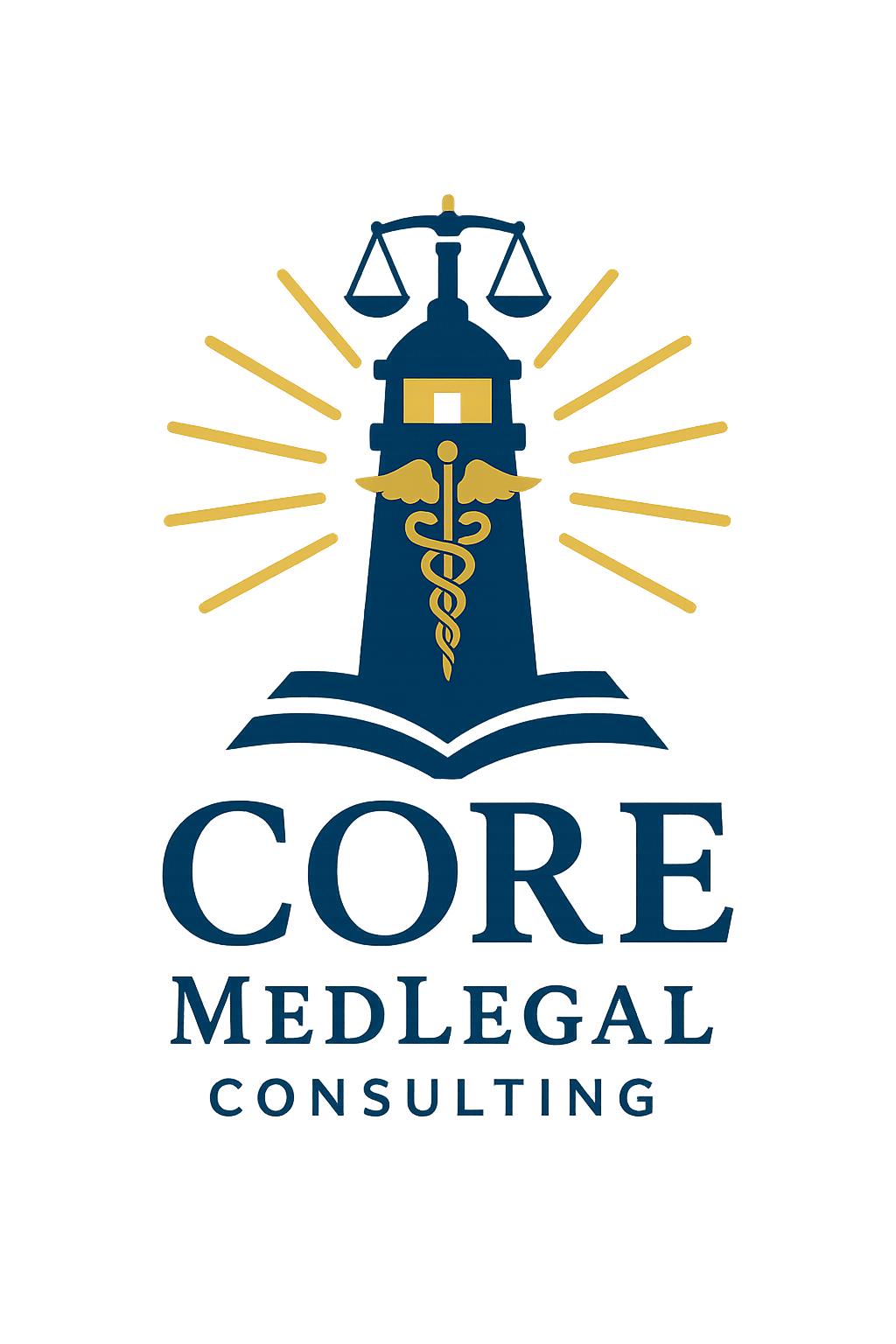At CORE MedLegal Consulting, LLC, confidentiality is not just a standard — it is the foundation of our practice. We understand the sensitive nature of the medical and legal information entrusted to us, and we are committed to protecting it with the highest level of integrity and discretion.
All communications, including email and fax transmissions, are conducted through HIPAA-compliant, secure platforms to ensure that client data, case records, and personal health information remain fully protected at every step of the process.
We strictly adhere to professional standards, legal requirements, and confidentiality agreements. Whether we’re reviewing medical records, consulting with attorneys, or providing expert witness services, you can trust that your case information is handled with the utmost care, respect, and confidentiality.
🛡️ HIPAA Compliance Brief for Legal Professionals
Prepared by: CORE MedLegal Consulting, LLC
🔍 What Is HIPAA?
HIPAA (Health Insurance Portability and Accountability Act of 1996) is a federal law that sets national standards for the protection of individually identifiable health information (PHI) held or transmitted by covered entities and their business associates.
⚖️ Legal Applicability in Civil Litigation
1. Protected Health Information (PHI)
Under HIPAA, PHI includes any information related to a person’s health, treatment, or payment that can be used to identify the individual. Common examples include:
- Names, addresses, dates of birth
- Social Security numbers
- Medical record numbers
- Diagnosis and treatment details
- Imaging and lab results
Attorneys accessing or sharing PHI during litigation must ensure appropriate safeguards are in place.
2. Covered Entities vs. Business Associates
- Covered Entities: Health care providers, health plans, and health care clearinghouses.
- Business Associates: Any third party (such as Legal Nurse Consultants or law firms) who accesses PHI on behalf of a covered entity.
Attorneys and LNCs are considered business associates when they obtain PHI to perform legal services related to medical care.
3. Permitted Disclosures Without Authorization
HIPAA allows disclosure of PHI without patient authorization in certain legal situations, such as:
- In response to a court order (only the PHI specified in the order may be disclosed).
- In response to a subpoena, discovery request, or other lawful process, provided that:
- The patient is notified of the request and given the opportunity to object, or
- A protective order is in place to limit further disclosure.
Attorneys must document efforts to meet these procedural safeguards.
📜 Common Legal Documents and Their HIPAA Implications
Document Type HIPAA Consideration
* Subpoena (No court order) Must notify patient or seek protective order
* Court Order Allows disclosure of specified PHI Medical Record
Request Must include HIPAA-compliant authorization or
meet exception
* Expert Witness Reports Must de-identify PHI if filed publicly
* Case Files & Chronologies Must store and transmit securely (HIPAA-compliant
platforms)
📁 Legal Nurse Consultant Responsibilities
Legal Nurse Consultants accessing PHI must:
- Execute Business Associate Agreements (BAAs) with law firms.
- Store and transmit PHI via secure, encrypted systems.
- Ensure access controls for files, devices, and communication.
- Never share PHI through unsecured email, unprotected cloud storage, or personal devices without proper safeguards.
- Comply with state privacy laws in addition to HIPAA, as some offer broader protections.
🔐 Best Practices for Legal Teams
- Use HIPAA-secure fax and email platforms.
- Implement two-factor authentication (2FA) for remote access to files.
- Limit PHI access to only those involved in the case.
- Redact PHI from exhibits unless medically relevant and permitted by court order.
- Maintain audit trails for record access and transmission.
⚠️ Violations and Liability
HIPAA violations can result in:
- Civil penalties: Up to $50,000 per violation
- Criminal penalties: Fines and imprisonment for intentional misuse
- Loss of trust: From courts, clients, and referring providers
Attorneys and consultants must ensure all parties are in compliance.
✅ Summary
HIPAA compliance in legal settings is not optional — it is a critical element of ethical and lawful practice. Legal Nurse Consultants serve as both medical experts and compliance-aware professionals, helping ensure that all medical data is reviewed, transmitted, and stored in accordance with HIPAA standards.
CORE MedLegal Consulting, LLC is committed to safeguarding protected health information through strict adherence to HIPAA and related privacy laws.
